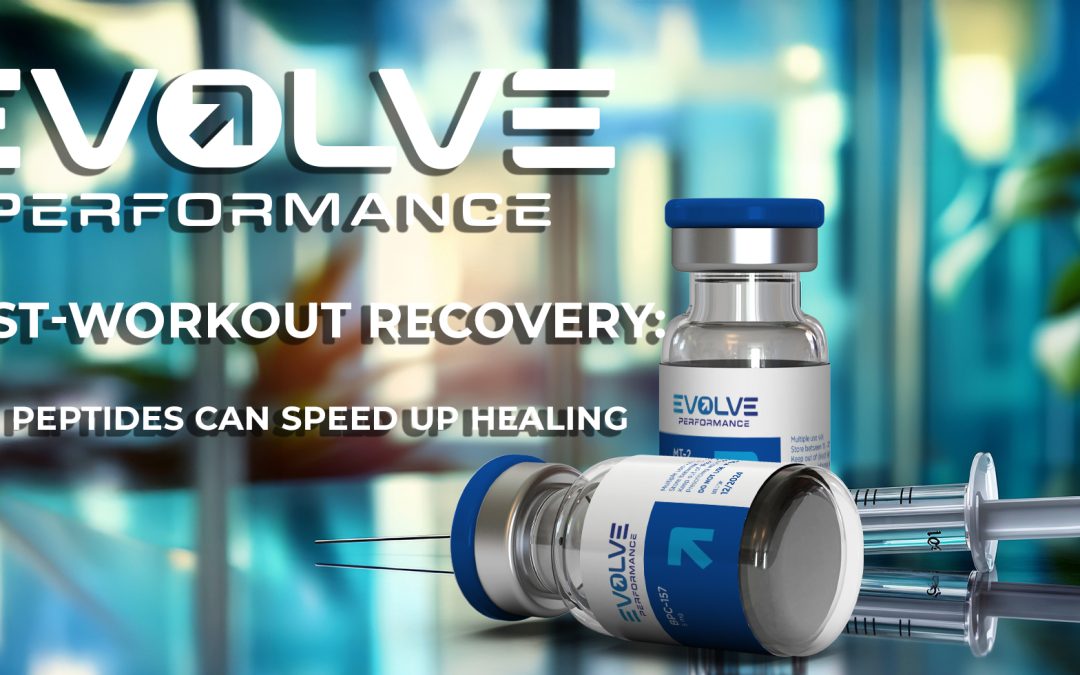Post-Workout Recovery: How Peptides Can Speed Up Healing
Effective post-workout recovery is essential for maximizing fitness gains and maintaining long-term performance. While traditional strategies like rest and nutrition play a significant role, peptides are gaining popularity for their ability to speed up muscle repair and reduce inflammation.
This guide explores how peptides work, their benefits for recovery, and tips for safe and effective use.
What Are Peptides?
Peptides are short chains of amino acids that act as building blocks for proteins. They play a critical role in various physiological processes, including muscle repair, tissue regeneration, and hormonal regulation.
In the fitness world, peptides are used to enhance muscle recovery, reduce soreness, and improve overall athletic performance.
How Peptides Aid Post-Workout Recovery
- Stimulating Growth Hormone Production
- Peptides like CJC-1295 and Ipamorelin increase the release of growth hormone, which supports muscle repairand tissue regeneration.
- Reducing Inflammation
- BPC-157 is known for its powerful anti-inflammatory properties, promoting faster healing of injuries and reducing post-exercise swelling.
- Enhancing Protein Synthesis
- Peptides boost the body’s ability to synthesize proteins, which are essential for repairing damaged muscle fibers after intense workouts.
- Improving Collagen Production
- Peptides like TB-500 enhance collagen synthesis, which helps strengthen connective tissues and prevents injuries.
Benefits of Peptides for Post-Workout Recovery
- Faster Muscle Repair:
- Accelerates healing of microtears in muscle fibers, reducing recovery time between workouts.
- Reduced Inflammation and Soreness:
- Minimizes delayed onset muscle soreness (DOMS), allowing for consistent training.
- Improved Joint and Tendon Health:
- Supports the recovery of connective tissues, reducing the risk of chronic injuries.
- Enhanced Overall Recovery:
- Boosts energy levels and restores muscle function faster, improving athletic performance.
- Customizable Options:
- Different peptides target specific recovery needs, from inflammation reduction to tissue regeneration.
Popular Peptides for Post-Workout Recovery
- BPC-157:
- Purpose: Reduces inflammation and accelerates healing of muscles, ligaments, and tendons.
- Benefits: Ideal for recovering from injuries or intense training sessions.
- TB-500 (Thymosin Beta-4):
- Purpose: Promotes healing and improves flexibility in connective tissues.
- Benefits: Enhances recovery from muscle strains and joint injuries.
- CJC-1295 + Ipamorelin:
- Purpose: Boosts growth hormone production for improved muscle repair and recovery.
- Benefits: Increases lean muscle mass and reduces post-workout fatigue.
- GHRP-6 (Growth Hormone Releasing Peptide-6):
- Purpose: Stimulates appetite and recovery through enhanced protein synthesis.
- Benefits: Supports muscle growth and tissue regeneration.
How to Use Peptides Safely
- Start with the Right Peptide
- Choose peptides based on your recovery needs:
- For inflammation: BPC-157.
- For muscle repair: CJC-1295 + Ipamorelin.
- Follow Proper Dosages
- Always adhere to recommended dosages to avoid potential side effects.
- Use Sterile Techniques
- Many peptides are administered via injection. Ensure proper hygiene and sterilization to prevent infections.
- Monitor Progress
- Track recovery improvements and adjust dosages or protocols as needed.
- Consult a Professional
- Speak with a healthcare provider or fitness expert before starting peptide therapy.
Potential Side Effects of Peptides
While peptides are generally safe when used correctly, improper use can lead to side effects:
- Mild Reactions: Redness, swelling, or irritation at the injection site.
- Hormonal Imbalances: Overuse of growth hormone-releasing peptides may cause bloating or water retention.
- Digestive Issues: Some users report nausea or stomach discomfort.
- Allergic Reactions: Rare but possible; discontinue use if symptoms occur.
Natural Alternatives to Peptides for Recovery
For those who prefer natural methods, several alternatives can support post-workout recovery effectively:
- Protein Supplements:
- Provide the amino acids needed for muscle repair.
- BCAAs:
- Reduce muscle soreness and promote faster recovery.
- Omega-3 Fatty Acids:
- Combat inflammation and support joint health.
- Hydration and Electrolytes:
- Replenish lost fluids and essential minerals for optimal recovery.
- Sleep and Rest:
- Adequate sleep is crucial for muscle repair and hormonal balance.
Comparing Peptides and Natural Recovery Methods
| Feature | Peptides | Natural Alternatives |
| Effectiveness | Fast and targeted recovery | Gradual and holistic improvement |
| Customization | Highly specific to recovery needs | General recovery support |
| Safety | Requires proper dosing and monitoring | Minimal risks |
| Cost | Higher | Affordable |
Legal Status of Peptides in Canada
In Canada, peptides are classified differently depending on their intended use.
Key Points:
- Research Purposes:
- Many peptides are legally available for research but not for personal use without a prescription.
- Prescription Use:
- Peptides like CJC-1295 and Ipamorelin can be prescribed for specific medical conditions.
- Online Purchases:
- Be cautious when buying peptides online; ensure you’re sourcing from reputable suppliers.
Conclusion
Peptides offer a powerful solution for post-workout recovery, helping athletes and fitness enthusiasts achieve faster healing, reduced inflammation, and improved overall performance. When used responsibly, they can be a game-changer for active individuals.
For those who prefer a natural approach, supplements like protein, BCAAs, and omega-3s, combined with adequate rest, provide effective alternatives. Always consult a healthcare professional before starting peptide therapy to ensure safe and optimal results.

